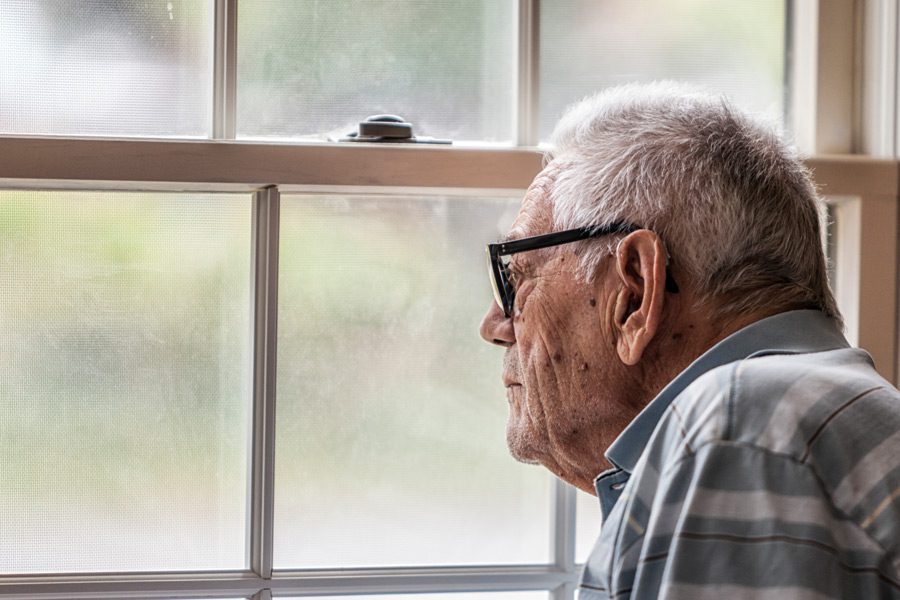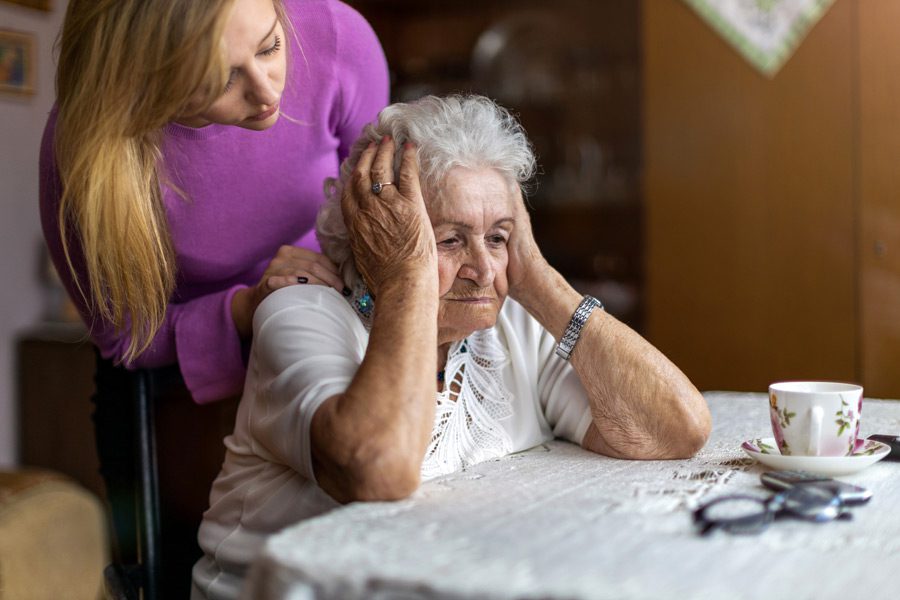Have you noticed that a loved one is having a harder time remembering recent events or important information? Depending on the stage, dementia and Alzheimer’s disease can have a severe impact on daily life, and can even contribute to dangerous situations. To minimize risks, elderly individuals and their loved ones should know the signs of memory loss and take steps to prepare for the disruptions.
1. Memory loss that disrupts daily life.
One of the most common signs of Alzheimer’s disease, especially in the early stage, is short-term memory loss. Other signs include:
- Forgetting important dates or events
- Asking the same questions over and over
- Needing to rely on memory aids or family members for things they used to handle on their own

2. Difficulty planning or solving problems.
Elderly individuals with dementia may experience:
- Changes in their ability to develop and follow a plan or work with numbers
- Difficulty following a familiar recipe or keeping track of monthly bills
- Difficulty concentrating
- Needing more time than usual to do things
3. Difficulty completing daily tasks.
People with Alzheimer’s often find it hard to complete daily tasks. Sometimes they may have trouble driving to a familiar location, organizing a grocery list, or remembering the rules of a favorite game.

4. Forgetting the time or their place.
Individuals living with dementia or Alzheimer’s can lose track of dates, seasons, and time. They may have difficulty understanding something if it’s not happening immediately and they may forget where they are or how they got there.
5. Difficulty understanding visual images and spatial relationships.
Some seniors may experience vision problems, which may lead to difficulty with balance or reading. Dementia may also cause problems judging distance, identifying color or contrast, and driving.
6. Confusion with words when speaking or writing.
People living with dementia may have difficulty engaging in or joining a conversation. They may stop in the middle of a conversation and struggle to continue, or they may repeat themselves. Seniors may forget words, have difficulty naming a familiar object, or use the wrong word (e.g., calling a “watch” a “hand-clock”).
7. Misplacing objects.
A person living with dementia may put things in strange places, lose things, and be unable to retrace their steps to find them again. The senior may even accuse others of stealing from them, especially as the disease progresses.
8. Decreased or poor judgment.
Individuals may have lapses in judgment and struggle to make decisions. For example, they may make poor decisions with money or neglect personal hygiene and grooming.
9. Withdrawal from social activities.
Dementia may cause difficulty holding or following a conversation. As a result, seniors may withdraw from hobbies, social activities, and other engagements, especially if they have trouble keeping up with others.
10. Changing mood and personality.
Another sign of dementia is mood and personality changes. Seniors can become confused, suspicious, depressed, fearful, or anxious. They may become easily upset at home, have unusual conflicts with friends, or feel upset when out of their comfort zone.
If you or a loved one is experiencing signs of dementia, schedule a doctor’s appointment for a medical evaluation. It’s important to get ahead of the disease to alleviate symptoms and make any necessary adjustments to their housing and living situation in order to keep them safe.

